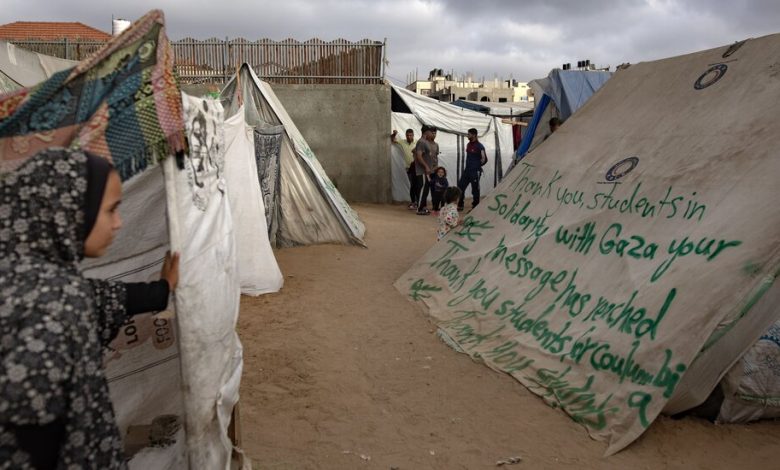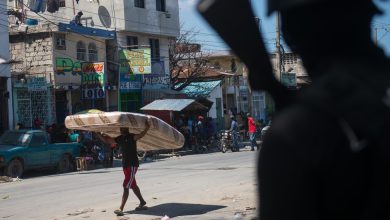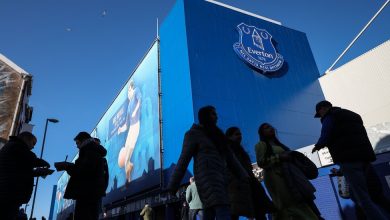Some Gazans Say U.S. Campus Protests Give Them ‘Hope’

Thousands of miles away from the campus protests that have divided Americans, some displaced Palestinians are expressing solidarity with the antiwar demonstrators and gratitude for their efforts.
Message of support were written on some tents in the southern city of Rafah, where roughly a million displaced people have sought shelter from the Israeli bombardment and ground fighting that Gazan health officials say have killed more than 34,000 people.
“Thank you, American universities,” read one message captured on video by the Reuters news agency. “Thank you, students in solidarity with Gaza your message has reached” us, read another nearby.
Tensions have risen at campuses across the United States, with police in riot gear arresting dozens of people at Columbia University on Tuesday night and officers across the country clashing with pro-Palestinian demonstrators who had erected encampments and seized academic buildings at other institutions. The protesters have been calling for universities to divest from companies with ties to Israel, and some have vowed not to back down.
The protests have come at a particularly fearful time in Rafah, with Prime Minister Benjamin Netanyahu of Israel vowing to launch a ground invasion of the city to root out Hamas battalions there despite glimmers of hope for a temporary cease-fire.
Palestinians “are very happy that there are still people standing with us,” said Mohammed al-Baradei, a 24-year-old recent graduate from the dentistry program at Al-Azhar University who spoke by phone from Rafah.
“The special thing is that this is happening in America and that people there are still aware and the awareness is growing every day for the Palestinian cause,” he added.
Akram al-Satri, a 47-year-old freelance journalist sheltering in Rafah, said Gazans are “watching with hope and gratitude the student movement in the United States.”
“For us this is a glimmer of hope on a national level,” he added in a voice message on Wednesday.
Bisan Owda, a 25-year-old Palestinian who has been documenting the war on social media, said in a video posted to her more than 4.5 million Instagram followers that the campus protests had brought her a new sense of possibility.
“I’ve lived my whole life in Gaza Strip and I’ve never felt hope like now,” said Ms. Owda.
Nader Ibrahim contributed reporting and video production from London.



